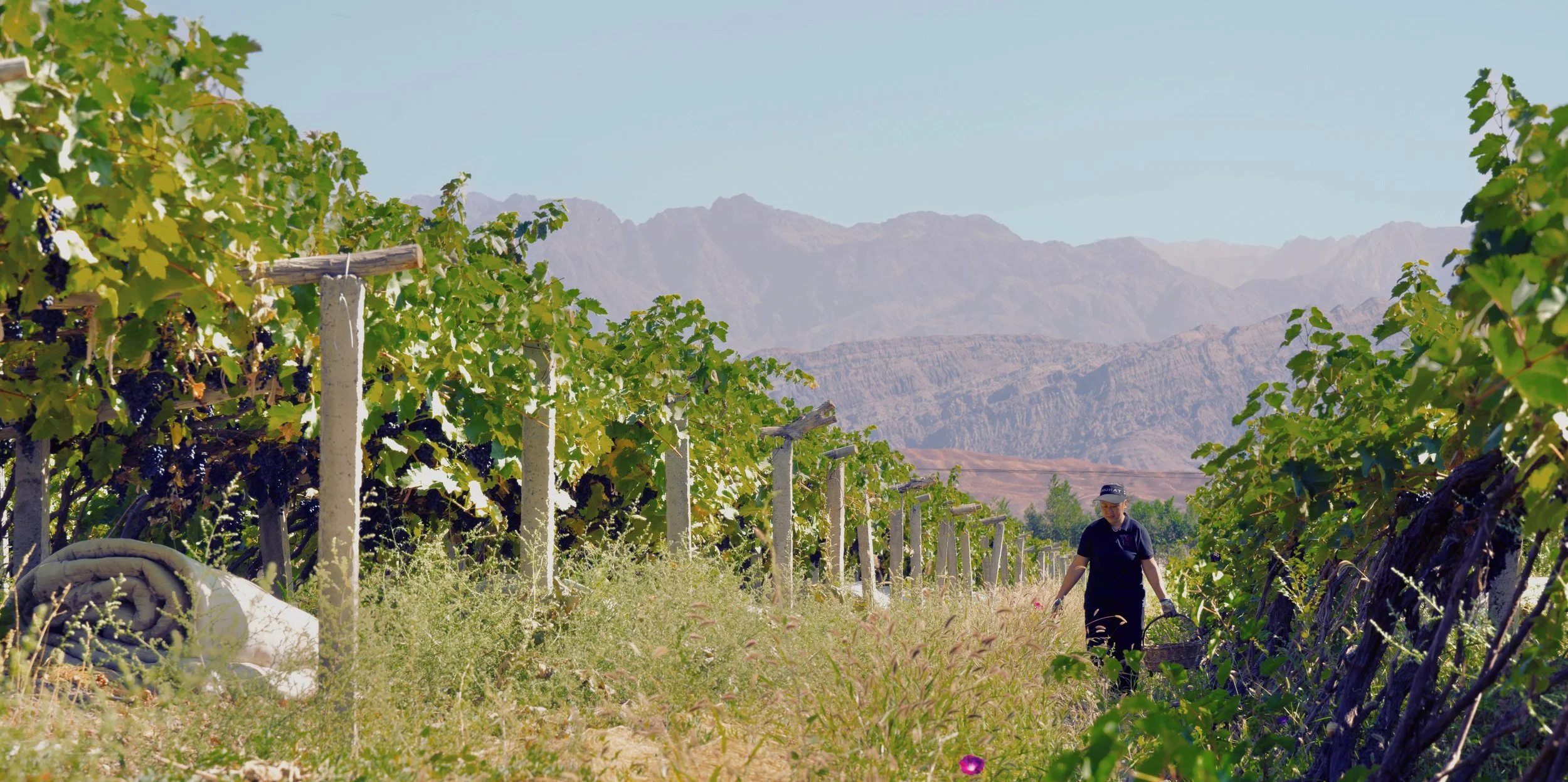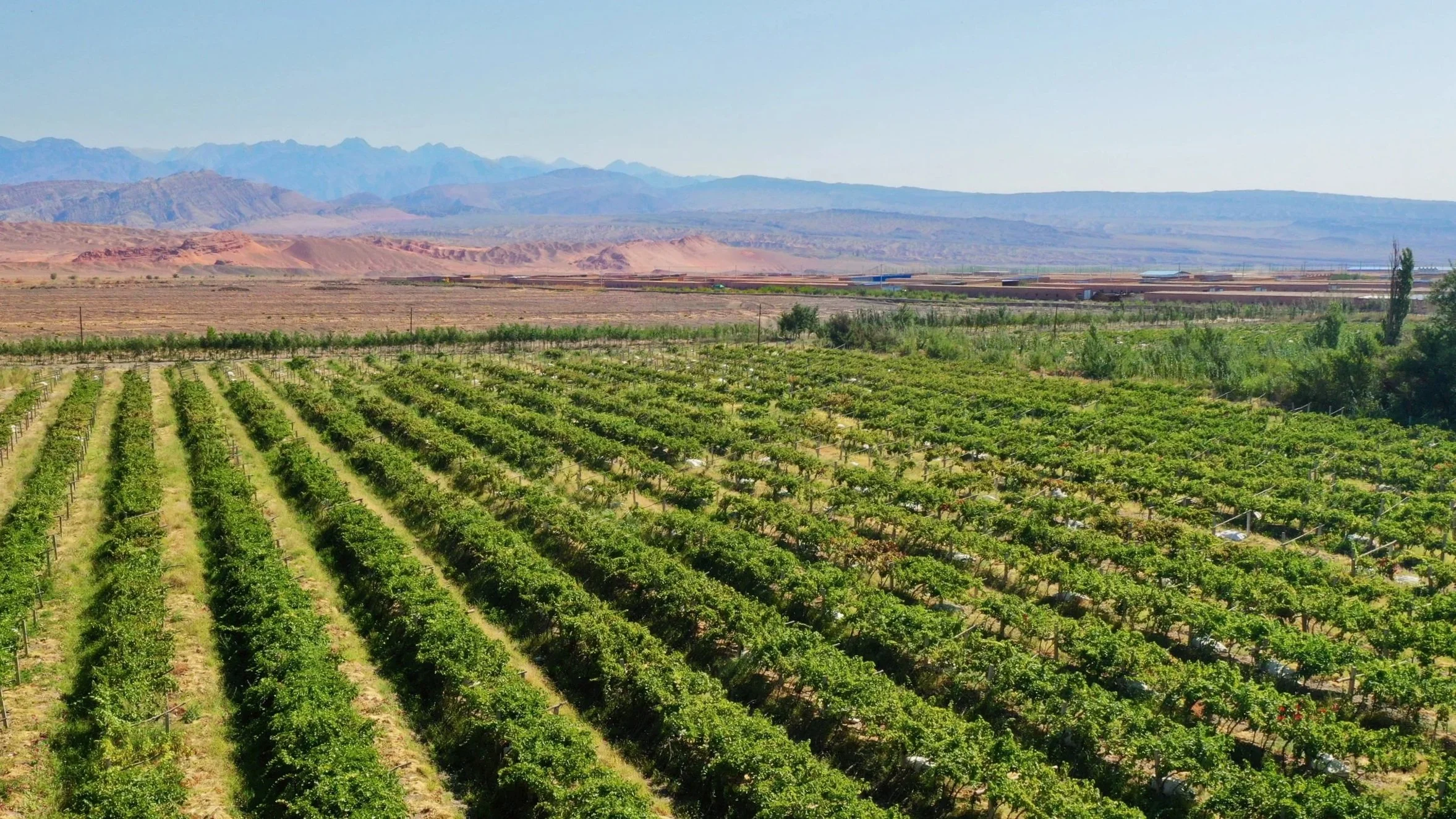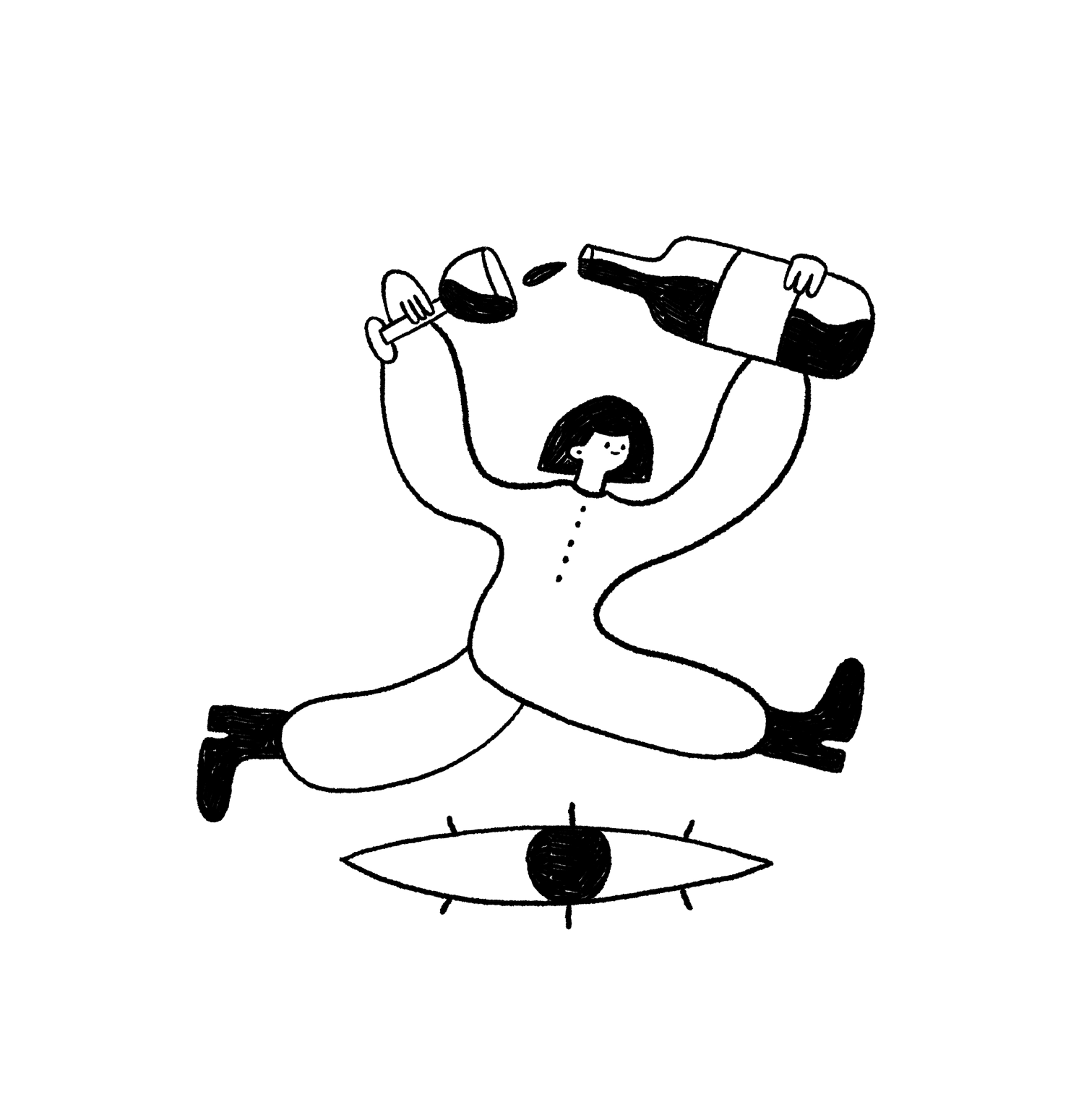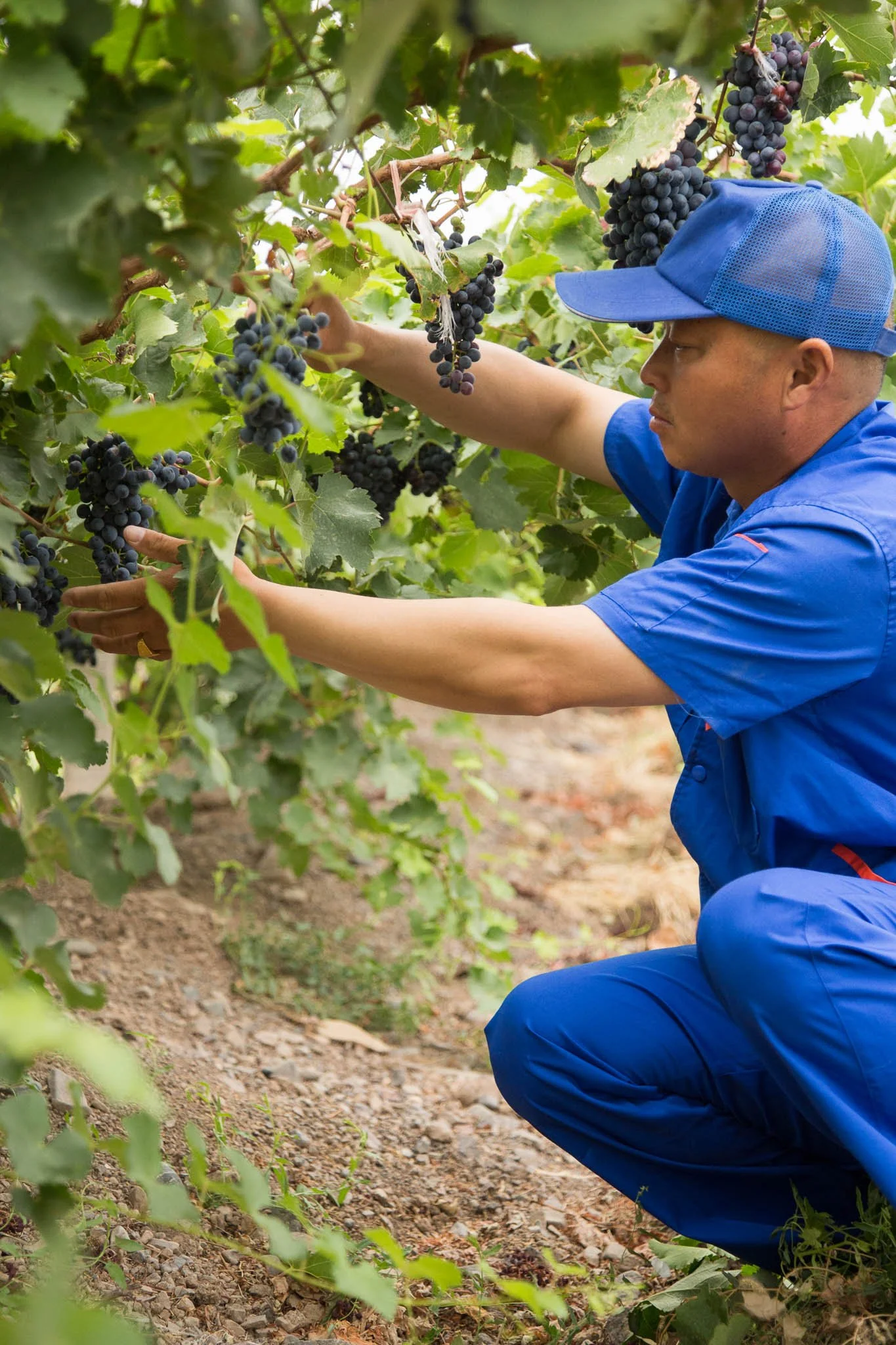
Puchang Vineyard
蒲昌酒莊
Nestled in the furthest-inland wine region in the world, Puchang Vineyard have defied Chinese wine trends. Led by K. K. Cheung and Loris Tartaglia, the team have found success championing Silk Road varieties including Rkatsiteli and Saperavi, as well as PIWI grapes Roudingxiang and Beichun.
One of the oldest commercial vineyards in the region planted in 1975, the Puchang Vineyard team have found inspiration in Xinjiang’s rich history as a Silk Road oasis, it’s ancient grape-growing culture, and reputation for abundant and quality fresh produce.
In a region often overlooked for its high volume wineries, Puchang Vineyard continue to demonstrate the value in using the local two-thousand-year winemaking heritage to inform their wines of today.
Winemaker: Loris Tartaglia, William Thomas
Established: 2008
Location: Turpan, Xinjiang
Farming Method: Organic
Vineyard Size: 54 hectares / 150,000 bottles per annum
Vineyard: 30% Roudingxiang (PIWI Muscat), 23% Beichun,, 12% Saperavi, 9% Rkatsiteli, 7% Welschriesling, 5% Cabernet Sauvignon, 4% Merlot, 4% Pinot Noir, 3% Cabernet Franc, 2% Tempranillo
Winemaker Loris Tartaglia
Wedged between the Turpan Depression and the Tian Shan mountains, the three vineyards managed by Puchang Vineyard are planted on desert - with Gobi sand at lower altitudes, and desert rocks higher up the mountains. However, the region’s historical significance as a Silk Road oasis and rich grape-growing culture have set the foundations for Puchang Vineyard to find its identity in its history.
Planted as Hongliuhe Horticultural Farm in 1975, Puchang Vineyard assumed ownership in 2008 - inadvertedly taking on some of China’s oldest commercial vineyards. As the story goes, Mr. K. K. Cheung, a Hong-Kong-based entrepreneur, was so impressed with the sweet Muscat produced at the winery, that he committed himself to further improving its quality and changing the world’s perception of Chinese wine.
In 2013, the Cheung family brought on Loris Tartaglia, an Venetian-born winemaker with 20 years experience, to lead the winery alongside Bordeaux consultant Gérard Colin - who had previously contributed to Grace Vineyard and Domaine de Long Dai. With an emphasis on organic farming practices, ECOCERT was easy to obtain - the harsh climate unsuitable for weeds and pests.
On the edge of the Taklamakan desert, Puchang Vineyard rely on the ancient 5,000km-long Karez irrigation system, one of the three great ancient Chinese engineering projects alongside the Great Wall and Grand Canal.
The three vineyards are spread across a range of altitudes from 300 to 1100 metres above sea level. Whilst the higher, rockier vineyards, with 44 year-old-vines, have found themselves suitable for aromatic whites made with Rkatsiteli and Welschriesling, the lower, sandier vineyards planted in 2010 are dedicated to PIWI grapes (varieties specifically bred for resistance to fungal diseases).
Despite best efforts, extreme weather conditions cause some v. vinifera vines to be lost each year. In response, now over half of the winery is dedicated to PIWI grapes - notably Beichun, a v. vinifera x v. amurensis variety developed in 1954, and Roudingxiang, a v. vinifera (Muscat Hamburg) x v. lambrusca variety, both developed to withstand extreme cold.
Historically, Muscat from Xinjiang was used to make sweet wines - under the long, hot, sunny days, grapes can easily ripen and raisin prior to fermentation. But Puchang have also championed dry styles similar to rich Northern Italian whites.
Whilst the winemaking team spend the 4-month-long growing season at the winery, cellar master Liu Xiao Yi manages the winery year-round, even in -20°c winters.

Vineyards
Yiwanquan Vineyard
1100m altitude, rockier soil
Team 5 Vineyard
580m altitude, sandier soil
Team 7 Vineyard
380m altitude, sandier soil
Wines
Rkatsiteli 2021
65% Rkatsiteli and 35% Welschriesling. Hand picked, fermented to approximately 30% MLF. Aged in 50% stainless steel and 50% French oak (Bordeaux barriques and puncheons). Aged for 24 months before bottling.
Muscat 2018
100% Roudingxiang (Muscat PIWI). Hand picked in three passings for acidity, taste, and body. Fermented in French oak to approx. 70% MLF. Aged in 100% new Bordeaux barriques for 12 months before bottling. 93pts, Tom Kline.
Saperavi 2017
100% Saperavi. Hand picked and fermented in barrel. Aged in two separate barrels; 50% second-use Bordeaux barriques for 12 months, and 50% second-use 3000 litre tonneau for 24 months before bottling.
Beichun 2018
100% Beichun. Hand picked and fermented in 50% stainless steel and 50% second-use 3000 litre tonneau. Aged for 30 months in stainless steel and second-use wine barrels, then aged for 18 months in bottle before release.



